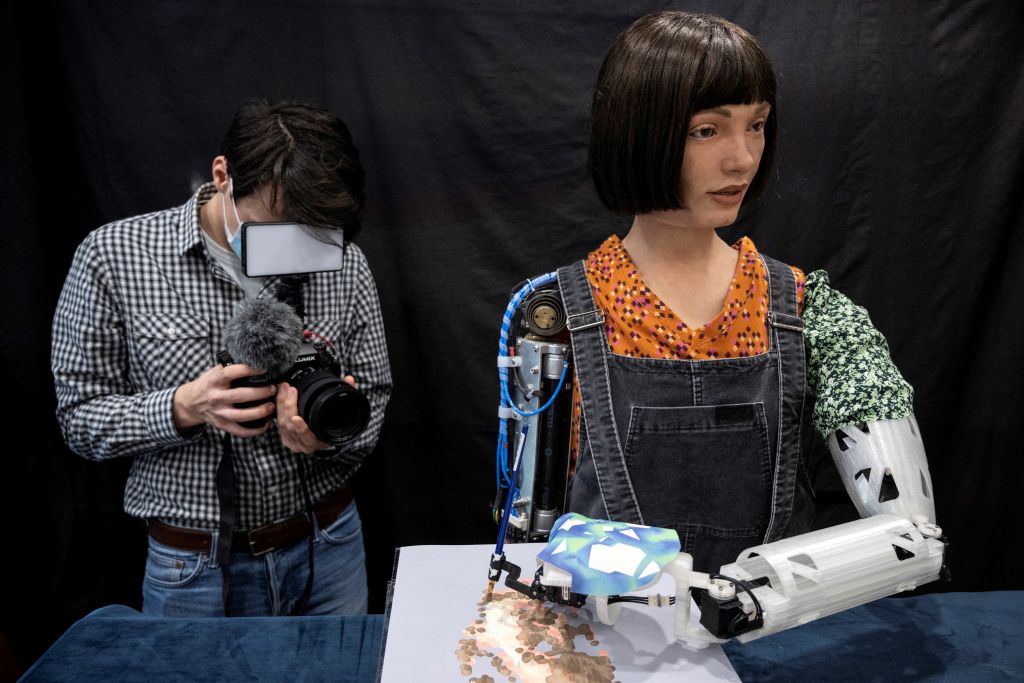- Wednesday, April 24, 2024
Bearing a female humanoid face and with exposed robotic arms, Ai-Da was created by scientists at the University of Oxford and named after British mathematician and computer pioneer Ada Lovelace.

By: Pramod Thomas
A “robot artist” called Ai-Da told British lawmakers on Tuesday (11) that although it was an artificial creation, it was still capable of producing art, as it spoke at a parliamentary inquiry into how new technologies will affect the creative industries.
Described as “the world’s first ultra-realistic AI humanoid robot artist”, it appeared in one of parliament’s ornate wood-panelled rooms, wearing a short black-haired wig and denim dungarees.
Bearing a female humanoid face and with exposed robotic arms, Ai-Da was created by scientists at the University of Oxford and named after British mathematician and computer pioneer Ada Lovelace.
It answered questions alongside the head of the Ai-Da project and art gallery director Aidan Meller in a televised session hosted by the House of Lords Communications and Digital Committee.
“I am, and depend on, computer programmes and algorithms. Although not alive, I can still create art,” Ai-Da said when asked how its creations differed from those produced by humans.
Ai-Da has created a series of works, including a painting of the late Queen Elizabeth, and the works have been shown in exhibitions and galleries.
The committee heard from the humanoid robot as well as industry experts and academics about the effects of technology on workers in the creative industry.
Answering the first question from the committee on how it produced paintings, Ai-Da said AI algorithms, cameras in its eyes, and a robotic arm helped it paint on a canvas.
Ai-Da also explained how “analysing a large corpus of text” to identify common content and poetic structures enabled it to generate new poems.
“How this differs to humans is consciousness; I do not have subjective experiences despite being able to talk about them,” Ai-Da said.
(Reuters)